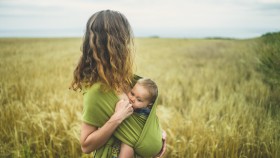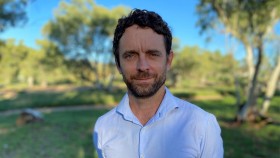Championing Indigenous Voice through research
Share
The theme for this year’s NAIDOC week is: Voice. Treaty. Truth.
RSPH researchers showed that voice can and should be central to our endeavours in the field of health and wellbeing. Four Indigenous women presented on their research, and demonstrated that listening to Indigenous communities about their needs can provide positive outcomes.
“Research can be and should be an engine of voice,” said RSPH Director Lyndall Strazdins. “Our presenters today showed that our responsibilities as researchers doesn’t stop at making exceptional evidence, but in our ability to turn this into action. And to do this we once again need to listen to and respect the peoples we work with.”
Tamara Riley presented on a One Health approach to animal health and management in Wadaye, a remote Northern Territory community of 2300 residents, and a huge pet population of 650 cats and dogs. While these pets can be of cultural significance, and are certainly of community importance, the remoteness of the area means that veterinary care is limited. The local community petitioned for better access to health care for their animals, and Tamara is working with a number of different agencies to increase animal health, and thus community health.
Jan Chapman presented on the Mayi Kuwayu national study of Aboriginal and Torres Strait Islander Wellbeing, a program created by and for Aboriginal and Torres Strait Islander people. Traditional Owners have long maintained that culture is vital to their health and wellbeing, but there hasn’t been empirical evidence to show this. Enter Mayi Kuwayu - meaning “to follow a people over a long time” – a study that aims to get 16,000 people to provide their views on how culture affects wellbeing. Maureen Gustafson furthered this presentation by discussing how knowledge gained through the Mayi Kuwayu study will be put into action (Knowledge Translation) in a meaningful and engaging way.
Amanda Wingett presented on food security and nutrition in Aboriginal and Torres Strait Islanders. With the number of Indigenous Australians reporting household food insecurity far outweighing that of non-Indigenous populations, this is a real matter of inequality. Amanda described the need to ensure our discussions on food security go beyond how physically accessible foods are, and include the need for food to be culturally acceptable.













